 Breast cancer is one of the leading causes of cancer death among women (second only to lung cancer). Most women assume that getting cancer comes down to random chance stemming from genetics and environment, but did you know that you can take active steps to reduce your risk of breast cancer? Your breast health is at least partially within your control.
Breast cancer is one of the leading causes of cancer death among women (second only to lung cancer). Most women assume that getting cancer comes down to random chance stemming from genetics and environment, but did you know that you can take active steps to reduce your risk of breast cancer? Your breast health is at least partially within your control.
Physical activity has been correlated with a reduction in breast cancer risk. In other words, people who are more active tend to have lower rates of breast cancer than those who are less active. The even better news is that you do not have to be an Olympic athlete dedicating your entire day to working out to see the benefits.
How Physical Activity Reduces Breast Cancer Risk
Reducing the risk of breast cancer through increased physical exercise occurs from a multifaceted set of biological mechanisms. The main ways that a person’s body can become more resistant to cancer through regular exercise are:
Weight
When a person is overweight or obese, they are doing more than just putting extra strain on their joints. Their fat cells can prompt the body to produce excess growth hormone—a chemical responsible for telling cells to divide more frequently. Because an individual’s breast tissue cells replace themselves more often, they are at an increased risk of cancer from an erroneous cell division.
Blood Estrogen
Similar to the issue with excessive growth hormone, fat tissue arising from lack of exercise produces estrogen, which leads to more free estrogen in the blood.
As a feminizing hormone, estrogen also contributes to breast cell proliferation, which can be a cancer driver by itself. However, more recent studies are also finding that estrogen changes how those cells repair their own DNA—and if they do so incorrectly, these faulty cells can become cancerous. More estrogen from more fat and less exercise increases this chance.
Immune Response
 The body has many pathways that carry blood, nerve signals, and more. One system that people tend to forget about is the lymphatic system, which carries lymph.
The body has many pathways that carry blood, nerve signals, and more. One system that people tend to forget about is the lymphatic system, which carries lymph.
Lymph houses white blood cells, antibodies, T cells, and other important immune defenders. When a person exercises, their exertion helps to facilitate the movement of lymph throughout the body, circulating more immune cells and boosting the immune system.
As a result, people who exercise more often expose potentially cancerous cells to more immune defenders. This can allow their immune system to more effectively attack and destroy pre-cancerous cells, potentially slowing or even stopping their growth in the early stages.
How Much Exercise Is Enough?
Everyone knows that they should get exercise, but it can be daunting to feel that you must dedicate hours each day to working out. In reality, breast cancer risk reduction can be achieved with just a few small changes to a person’s everyday routine. Make sure that you get at least 2.5 hours of moderate activity every week, and aim for at least an hour and a half of vigorous activity, too.
Exercise does not need to happen all at once! It is all right to spread it over the course of the week. This makes getting active more accessible for people with busy schedules and other responsibilities.
Tips to Improve Activity
You may already be getting moderate exercise without realizing it! When aiming for your 2.5 hours of moderate activity, try exercises such as:
- Walking at a brisk pace
- Mowing the lawn with a push mower
- Lifting weights
- Riding a bike to work or to run errands
- Gardening
- Washing the car
- Walking up and down stairs
Vigorous exercise takes a little more intentionality—usually necessitating a chunk of the day carved out for it. But even 20 minutes per day is enough! Vigorous exercises can include:
 Jogging
Jogging- Swimming laps
- Spinning
- Aerobics
- Martial arts
- Dancing
- Competitive sports
The best way to incorporate more exercise into your life is to find activities you enjoy. If you have a dog, consider using your morning walk as a brisk, moderately-paced activity, then during the evening walk, alternate between walking and short sprints. You will boost your heart rate into the vigorous zone, and your pet will have a great time!
Get Checked for Breast Cancer Regularly
Physical activity is one piece of the breast cancer prevention puzzle. Alongside at-home self-exams, eating healthy, and understanding your genetic history, stopping breast cancer requires being proactive. Be sure to get checked for breast cancer regularly by your gynecologist.
They can examine your breast tissue and teach you what is normal, how to do self-exams, and more. Contact Raleigh Gynecology & Wellness to schedule your breast exam if you are due!

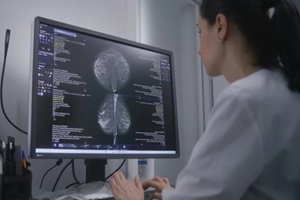
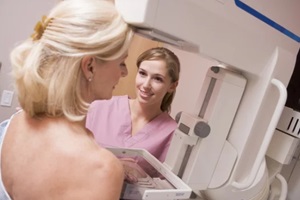 Patients whose mammogram results have been assigned a BI-RADS value of one have a
Patients whose mammogram results have been assigned a BI-RADS value of one have a 

 A mammogram is a
A mammogram is a  Do not wear lotion, deodorant, or any other substance applied to the skin of the torso and underarm areas, as this can appear in mammogram imaging and interfere with results.
Do not wear lotion, deodorant, or any other substance applied to the skin of the torso and underarm areas, as this can appear in mammogram imaging and interfere with results. Mammograms are pivotal in early
Mammograms are pivotal in early  While
While 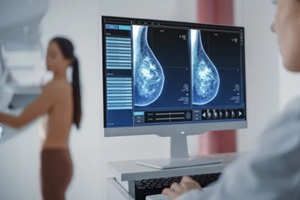 While extremely useful for early detection, mammograms
While extremely useful for early detection, mammograms 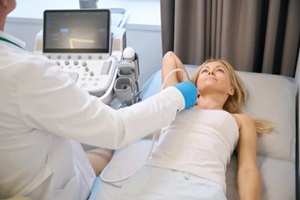 The mention of a “
The mention of a “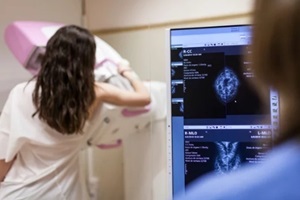 Despite fantastic progress in lowering breast cancer deaths through early detection, every woman’s ultimate hope is for the disease not to develop at all. So, innovations centered on more
Despite fantastic progress in lowering breast cancer deaths through early detection, every woman’s ultimate hope is for the disease not to develop at all. So, innovations centered on more